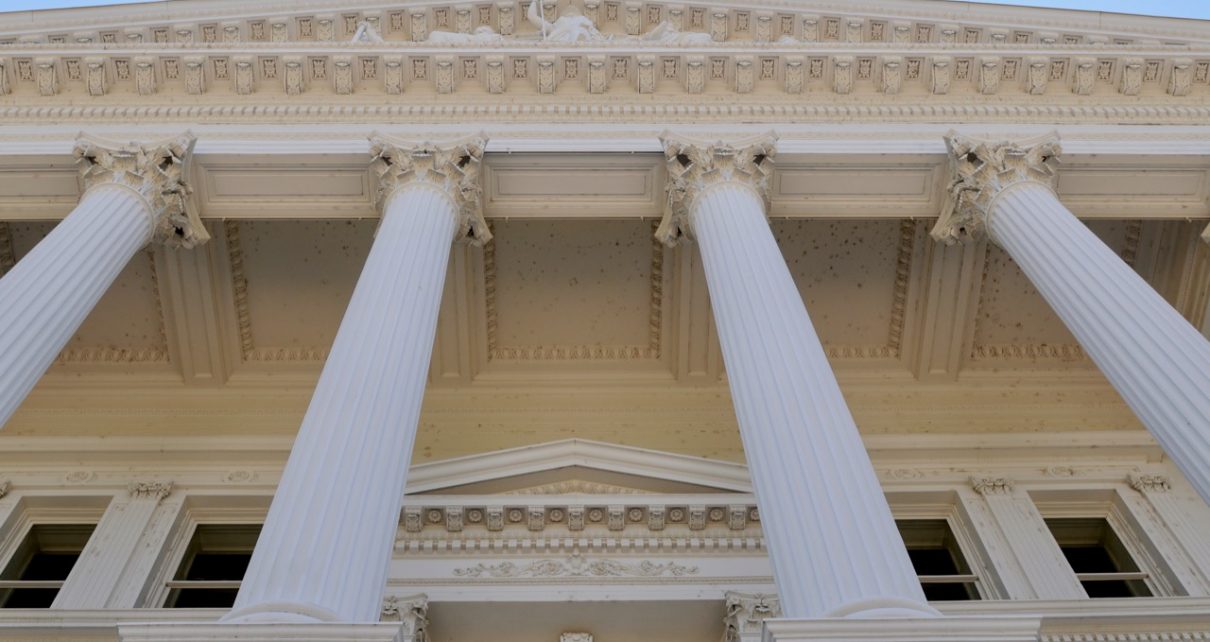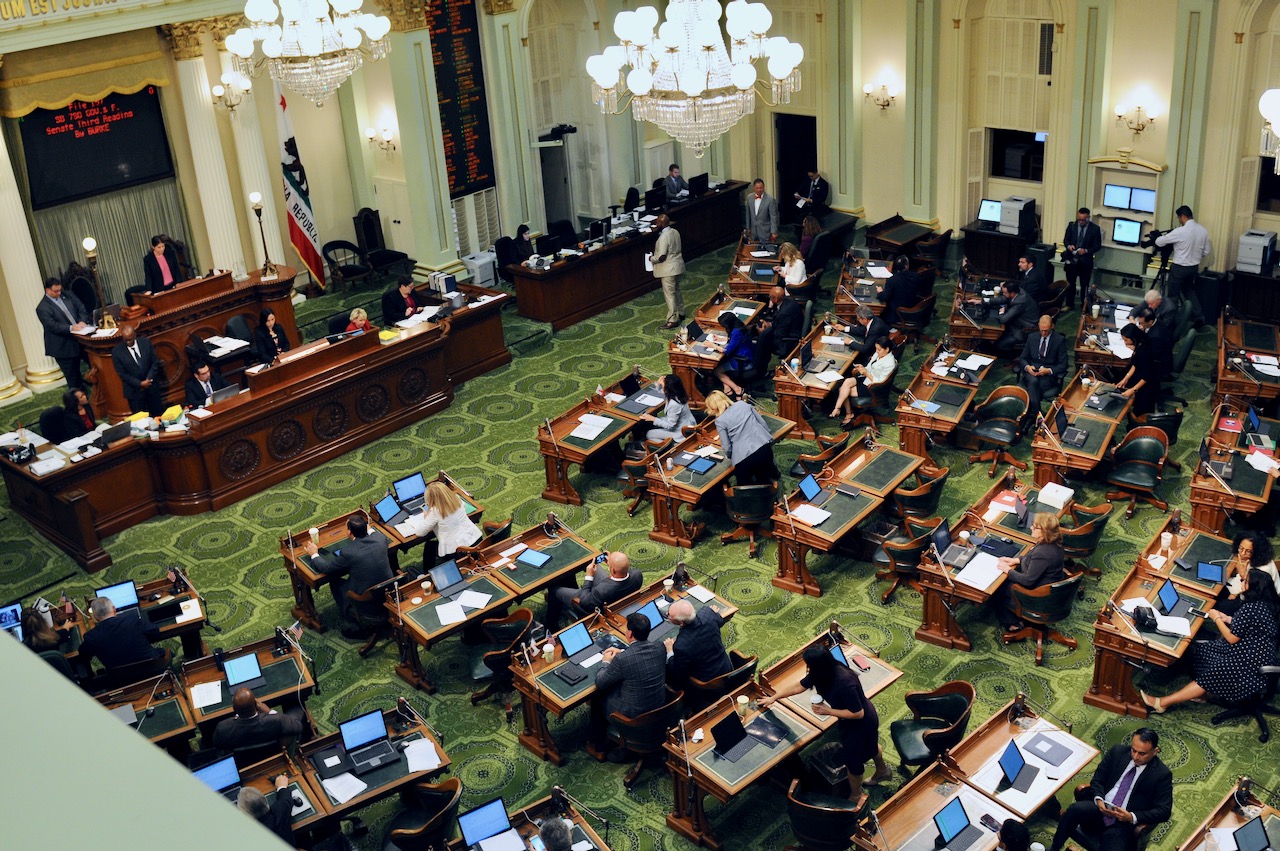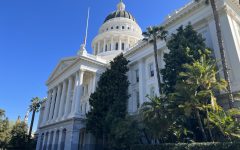
California State Capitol. (Photo: Kevin Sanders for California Globe)
Are Legislative Findings in Prop. 28 Bills Sufficient?
The bills that propose to amend Prop. 28 should also provide some rationale for their proposed amendments
By Chris Micheli, June 25, 2023 7:59 am
In reviewing recent legislation that proposes amendments to California’s Arts and Music in Schools Act, as enacted by the voters by Prop. 28 in November 2022, the same legislative finding and declaration is made in a bill. It is a simplistic statement that raises the question whether this language meets the requirement of Prop. 28.
Prop. 28, formally titled the Arts and Music in Schools—Funding Guarantee and Accountability Act, enacted an initiative statute that, in Section 1 of Prop. 28, provides the following:
SECTION 1. Findings and Declarations.
(a) Studies on educational achievement prove that arts and music education improves student learning. Music education has been shown to improve cognitive development and spatial reasoning, while the dramatic arts improve reading comprehension. Arts and music education has also been shown to improve school attendance and individual student self-confidence and motivation to learn, particularly among poor and other at-risk students. An arts education also provides a viable pathway to a job in California’s creative economy, while developing and expanding culture.
(b) Despite the clear value of arts and music education, an independent study of arts education in California found:
(1) Ninety percent of elementary schools fail to provide a high-quality course of study across arts disciplines.
(2) Ninety-six percent of middle schools fail to provide a high-quality course of study across arts disciplines.
(3) Seventy-two percent of high schools fail to provide a high-quality course of study across arts disciplines.
(c) The same study found that music education, in particular, has seen a dramatic decline in student enrollment and offered curriculum. Not surprisingly, student access to arts education is worse for highpoverty schools.
(d) The cause of the steady decline in arts and music education is directly linked to inadequate and unstable funding of such programs. As one school principal simply and honestly stated: “In tough times, when you cut back to essentials, the first thing to go are the arts programs.” In fact, over 70 percent of all school principals said that inadequate and unstable funding was a significant barrier to providing arts education to their students.
(e) The solution to this problem is clear. We need to provide California public schools with a dedicated annual source of additional funding for arts and music education. This act ensures every student in California’s K–12 public schools has access to a highquality arts education by:
(1) Increasing and stabilizing funding for arts and music education so that schools can develop and maintain a high-quality course of study in arts and music—year after year.
(2) Holding public officials accountable for using such funds for arts and music education by:
(A) Requiring that these funds be primarily spent on certificated arts teachers, classified personnel, and teaching aides.
(B) Requiring schools to publish annual reports identifying the specific arts programs provided and the number of students participating in the programs funded.
(C) Ensuring that every public school will receive increased funding for arts and music education, and providing even more funding for schools that serve children in low-income communities who lack access to arts and music education.
(D) Protecting existing Proposition 98 funding of public schools by requiring the Legislature to use money from the state’s General Fund to supplement Proposition 98.
(3) Doing all of this without raising taxes.
(f) This measure will provide funds to increase by more than 50 percent the number of arts and music educators in classrooms.
(g) Therefore, the people declare that arts education is an educational priority worthy of the state’s commitment to a minimum funding guarantee of an additional 1 percent of the amount funded for public education, and hereby enact “The Arts and Music in Schools—Funding Guarantee and Accountability Act.”
In addition, Prop. 28, in Section 2 (found at Education Code Section 8821(c)), provides the following:
(c) Except as provided in subdivision (j) of Section 8820, the Legislature may amend this chapter to further its purposes by a bill passed in each house by rollcall vote entered into the journal, two-thirds of the membership of each house concurring.
Prop. 28 was a statutory initiative enacted by the People and allows the Arts and Music in Schools Act to be amended by the Legislature. It specifies that any provision of the Act may be amended by a 2/3 vote of the Legislature, so long as that amendment “furthers the purposes” of the Act.
. Recall that Article II, Section 10 of the California Constitution provides in Subdivision (c):
The Legislature may amend or repeal a referendum statute. The Legislature may amend or repeal an initiative statute by another statute that becomes effective only when approved by the electors unless the initiative statute permits amendment or repeal without the electors’ approval.
This provision only allows an initiative that was adopted by the state’s voters to be amended by the Legislature (such as Prop. 28) if the initiative permits amendment without the electorate’s approval. Prop. 28 does allow amendment by the Legislature as described above.
As a result, the Legislature may amend Prop. 28. So, when the Legislature desires to amend Prop. 28, it includes in a “plus section” (which can be seen at the end of a bill that proposes to amend the Act) a legislative finding and declaration. The following is an example of what is currently contained in Prop. 28 amendment bills:
The Legislature finds and declares that Sections 1, 2, and 3 of this act, which amend Sections 8820, 8821, and 14041 of the Education Code, further the purposes of the Arts and Music in Schools—Funding Guarantee and Accountability Act (Chapter 5.1 (commencing with Section 8820) of Part 6 of Division 1 of Title 1 of the Education Code).
The question to address is whether the language in the above example is sufficient or if there should be some explanation why the Legislature believes that Prop. 28’s purposes are being furthered by the proposed amendment. Moreover, an amendment to Prop. 28 should also include language in the amending bill that all paragraphs of subdivision (c) have been met.
The Legislative Counsel’s Digest includes the following description:
Proposition 28 authorizes the Legislature to amend its provisions by a 2/3 vote of each house if the amendment furthers its purposes.
Unfortunately, bills amending Prop. 28 that contain a simple statement as set forth above do not in any way explain why the Legislature actually believes the proposed amendment “furthers the purposes” of the Arts and Music in Schools Act. Instead, the bill merely states the legislative finding and declaration without any further justification or explanation provided.
As with other bills that require legislative findings and declarations, should the bills that propose amendments to Prop. 28 include reference to any of Prop. 28’s specified purposes (there are quite a few of them in Section 1 of the Act)?
This approach, providing a short explanation, is the approach often taken with urgency clauses and special statutes. If courts examine the urgency clause or special statute findings, there is at least a short sentence or paragraph that explains why the Legislature has determined a particular bill needs an urgency clause or why the bill qualifies as a special statute.
So, perhaps the bills that propose to amend Prop. 28 should also provide some rationale for their proposed amendments so that, if the legislation were challenged in litigation, courts would have a basis for understanding why the Legislature determined the bill made an amendment to Prop. 28 furthered its purposes.
As a result, the Legislature should consider adding some explanatory language to their simple statements in Prop. 28 amendment bills going forward. And, these bills should include language regarding how the bill complies with the specified procedural requirements in Prop. 28.
- Probate Code Could Be a Basis for Statutory Interpretation Principles - February 22, 2026
- Conservation Banks - February 22, 2026
- Mergers of Unincorporated Associations - February 21, 2026



